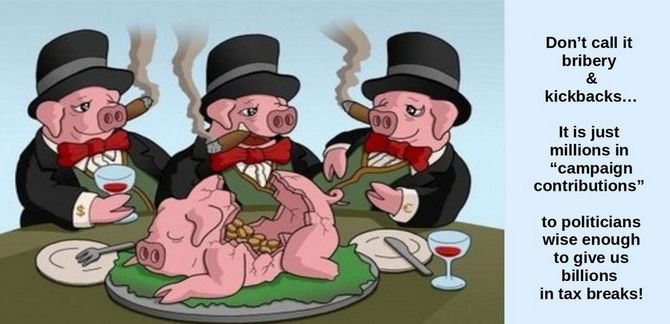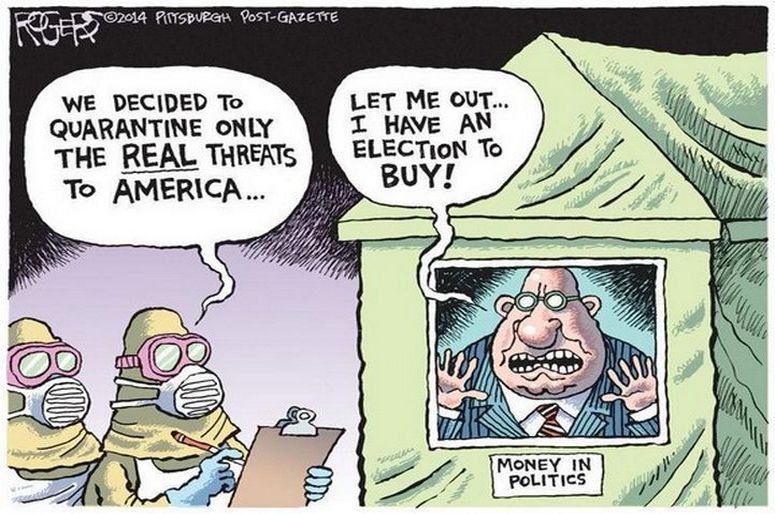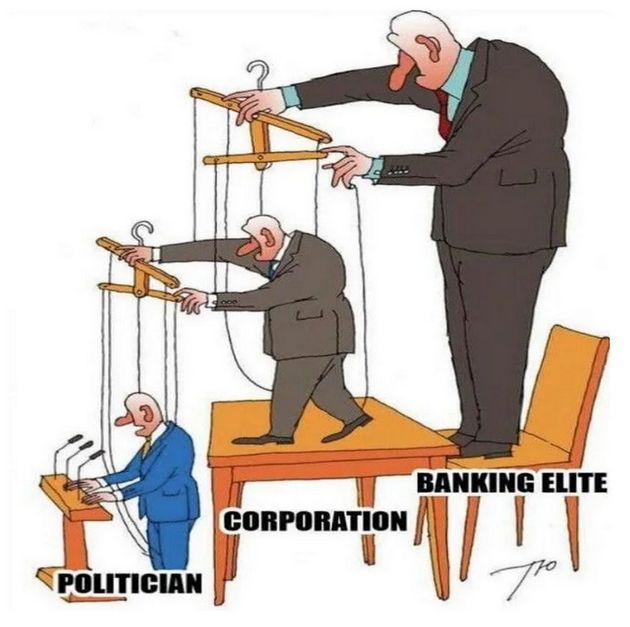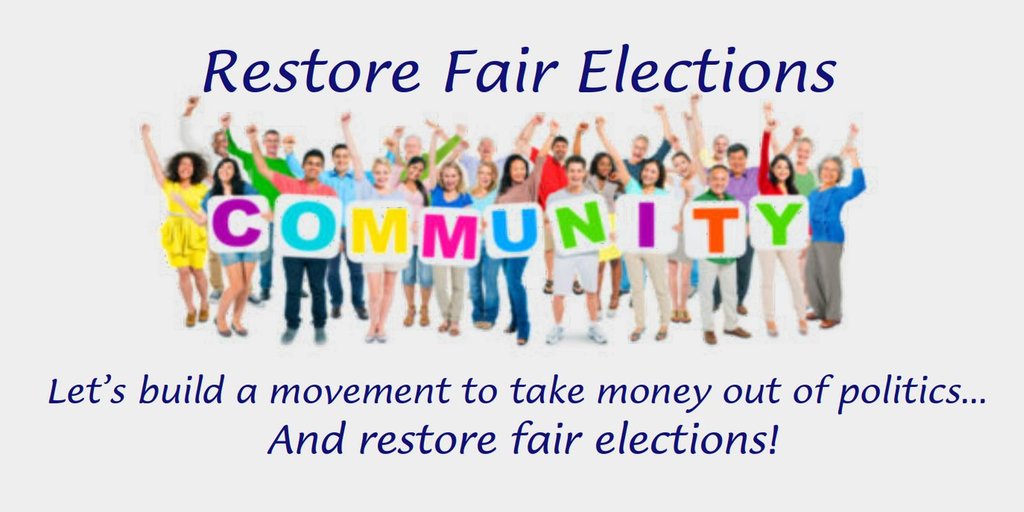Welcome to Restore Fair Elections. Our mission is to reverse the trend towards increasingly “rigged” elections whereby a government of the people, by the people and for the people has been replaced by a government of the rich, by the rich and for the rich.
Over two thirds of the American people think our elections are rigged and less than 20% of Americans approve of Congress. However, thanks to our currently legal political bribery and kickback schemes, Congressional incumbents are typically able to outspend challengers by a margin of ten to one – which is why Congressional incumbents are re-elected more than 95% of the time – despite their historically low Congressional approval ratings. It is time for real change!

The current level and frequency of lies by elected officials is staggering. Here is a recent lie from New York Governor Kathy Hochul: “New York State remains committed to strengthening our democratic process, championing the right to vote for every citizen and cementing our place as a national leader on voting rights.”
In fact, in May 2020, New York officials attempted to cancel the 2020 Democratic Party Presidential Primary and declare Joe Biden the winner. Biden’s opponents had to take them to federal court where a judge ordered New York to hold the election! Not even Tammany Hall was as corrupt as the New York Democratic Party.
Meanwhile here are some revolting facts about the last two Presidential elections: There are about 250 million voting age adults in the US. Yet in both the 2016 and 2020 Presidential elections, nearly 100 million Americans were so disgusted with their choices, they did not bother to vote. In both the 2016 and 2020 elections, neither candidate got more than 30% of the peoples vote. Meanwhile, over 40% of eligible Americans did not vote at all. Despite this fact, there were thousands of precincts where the number of ballots cast exceeded the number of voters who lived in the precinct!
In both 2016 and 2020, the Presidential election came down to three battleground states: Arizona was decided by ten thousand votes. Georgia was decided by twelve thousand votes and Wisconsin was decided by twenty thousand votes. Meanwhile, more than a million ballots were rejected due to problems like signatures not matching.
Two weeks after the November 2020 election, Donald Trump was condemned for sending out a Tweet in which he claimed that the percent of rejected ballots in Georgia had magically fallen from 4% to “Almost Zero”. In fact, the percentage of rejected ballots in Georgia had magically fallen from 6.4% in 2016 to almost zero in 2020. The Georgia election was decided by a tiny fraction of 1 percent. But the real problem is that the system we have is so unreliable that 6.4% of the voters do not even have their votes counted.
Closer to home, one of my students showed me her ballot and asked what to do with it. The problem? My student was from Japan. She had been “automatically registered to vote” when she got her Drivers License. There are more than one hundred thousand foreign national college students like her here in Washington state.
Here is another example. At our local University, several thousand ballots were found in the University Voting Drop Box located in the middle of the campus. The problem? In November 2020, this University was closed due to the government lockdown. All classes were being conducted remotely and the University was a Ghost Town! So where did all of the ballots come from?
As for the claim that our Voting Machines are secure, the only study actually done on them (in Texas by the State Auditor) concluded that they were not secure. In fact, all of the current voting machines in the US use the Windows operating system, which is known to suffer from an average of about a thousand security flaws per year. This is in addition to the known deliberate back doors placed in all Windows computers by Microsoft. Anyone who claims that our voting machines are secure simply has not done the research.
Sadly, our defective vote counting system is just one component of our broken election system. In the 2020 election, Dr. Robert Epstein, a Harvard trained researcher and Democratic voter, found that the Google Search monopoly had used their Search Engine to shift the votes of more than 6 million independent voters from Trump to Biden.
Other recent exposures have revealed that Facebook and Twitter were forced to systematically deleted millions of posts to manipulate voters during the 2020 election at the direction of federal agents who used their power to censor the voices of millions of Americans in order to manipulate the 2020 election. In addition, the FBI had the Hunter Biden laptop in their possession for an entire year. Yet they lied to the American people – falsely claiming the laptop was a Russian plot – in order to manipulate the 2020 election.
Equally disturbing is the buying of elections by a few billionaires. Because of the 2010 Citizens United decision, which claimed that corporations have the same rights as people and that money is the same as speech, the corruption flood gates were opened allowing corporations and billionaires to use billions of dollars to rig elections. Thanks to 67 billionaires and a few trillion dollar corporations like Microsoft and Google, the Democratic and Republican Parties were given more than a billion dollars to manipulate the 2020 election. Biden is on track to double this amount to more than two billion dollars for the 2024 election - despite the fact that two thirds of all Democrats think he is too old and want someone else to run and despite the fact that Biden has some of the lowest poll numbers of any President in history.

Since the Citizens United decision, it does not matter what the voters think. All that matters is what the billionaires think. Regardless of who wins in 2024, this tidal wave of corporate money will result in the 2024 election being the most rigged election in US history.

Our current rigged election system has resulted in the greatest concentration of wealth and power in human history. The corrupting influence of money has resulted in the merger of corporate and state power where the only goal seems to be maximizing short term profits by manipulating and robbing from the poor and middle class.
Meanwhile politicians sell their soul to the highest bidder through thinly veiled Bribery and Kickback schemes – disguised as campaign contributions from corporate lobbyists, political action committees, super PACS and dark money “issue advocacy” groups.
A fair economy and an honest government requires fair elections. If an election is not fair to all voters and all candidates, then it is not really an election. It is simply making a mockery of our democracy.
Our goal is to restore fair elections by defining the components of a fair election in the framework of a Restore Fair Elections Constitutional Amendment. We realize that corrupt politicians are unlikely to vote to end their gravy train. But the first step in solving any problem is defining both the problem and the solution. As voters become more aware of Fair Elections as an alternative to rigged elections, we are confident that voters will eventually choose candidates who support a Restore Fair Elections Amendment over the current batch of corrupt incumbents.
Below is our rough draft of a Restore Fair Elections Amendment to the US Constitution which will end corruption of our election system once and for all. If you think it is time to end rigged elections in the US, then please share this proposal with your friends, family and elected officials.
Also please note that this document is subject to change. If you have ideas for additional reforms to make our elections more fair, please feel free to email them to me!
David Spring M. Ed.
David at Restore Fair Elections dot org
- Restore Fair Elections Constitutional Amendment -
The purpose of this amendment is to restore fair elections by specifying uniform rules for Congressional and Presidential Elections and clarifying the meaning of One Person, One Vote.
Section 1: The provisions of the Restore Fair Elections amendment shall apply to all federal elections including all Congressional and Presidential Primaries and General Elections. It is the intention that all Congressional and Presidential elections be held in a similar manner for all voters and all candidates in every state because Congressional Representatives and the President affect every citizen in the United States - and not merely the voters in any particular state or political party.
Section 2: Equal ballot access for all candidates. No state or party shall impose artificial financial barriers, such as excessive filing fees or excessive petitioning requirements, that limit ballot access for poorer candidates. No state or party shall deny access to the Primary ballot to any self declared Congressional (or Presidential) candidate who is supported by more than 5% of eligible voters in their Congressional District (or national) poll. Candidates who may not meet the 5% Polling threshold may qualify for the Open Primary Ballot by paying a filing fee of no more than $1,000, or alternately, by turning in petitions from 1,000 registered voters in their Congressional District or State.
Section 3: Restore the Fairness Doctrine. Every candidate shall have an equal opportunity to interact with the voters. No media, government agency or political campaign shall be allowed to censor any candidate. Equal time and space will be provided to all candidates by all TV, Radio, Print and Online Social media platforms. If an article or program provides a platform for an Incumbent within 90 days of an election, equal time and space must be provided for their challengers.
Section 4: Repeal the Citizens United Supreme Court decision. No candidate shall be allowed to buy an election. Campaign contributions shall be limited to $1,000 per eligible voter per election. Corporations and unions are not people and therefore are not allowed to contribute to or influence any federal campaign through a Political Action Committee, a Super PAC, Dark Money or any other source.
Section 5 End Federal Bribes and Kickbacks. Federal employees and well as employees of federal contractors are prohibited from contributing to the campaigns of any federal candidate. For example, employees of corporations such as Microsoft and Boeing – who receive billions of dollars in tax breaks and federal contracts – are prohibited from contributing to federal campaigns.
Section 6 End Federal Employee Interference in Elections. Federal employees as well as employees of federal contractors are prohibited from interfering in federal elections. For example, they are prohibited from threatening social media or using thousands of fake bots to manipulate public opinion and attack candidates.
Section 7: Repeal the Democratic Party v Wisconsin Supreme Court decision. The right of citizens to vote in a fair election and the right of candidates to run in a fair election and the right of states to conduct a fair election are all greater than the associational rights of any party to rig an election in favor of a preferred candidate.
Section 8: Each state shall provide its voters with an online Voters Guide for each election. This online Voters Guide shall give a free web page to each candidate with a Word Limit of at least 1000 words where the candidate can explain why voters should vote for them rather than their opponents. In addition, each candidate is entitled to edit their page in order to rebut any charges made against them by their opponents.
Section 9 End junk mailers and yard signs. Candidates can and should make their case to the voters through the Election Voting Guide. Junk mailers and yard signs do not inform voters but instead give a huge advantage to wealthy candidates who can afford these enormous and frivolous expenses.
Section 10 Candidates and their supporters may interact directly with the voters. Candidates are encouraged to go door to door meeting with voters to hear their concerns. No law shall be past restricting the right of candidates to interact directly with the voters.
Section 11 Candidate Debates and Forums shall be provided by appropriate public venues. It is essential that voters be able to ask candidates questions and judge their answers in a fair and impartial manner. Each major network shall therefore offer one or more Congressional District debates and one or more Presidential Candidate Debates to include all candidates who poll at more than 5% before each Primary and General Election.
Section 12: All voters have an equal right to participate in open primaries and open general elections. Each state will provide a single primary or general election ballot to all eligible voters regardless of their party registration. The ballot shall include the names of all candidates with their preferred party designation.
Section 13: All precinct caucuses shall be open to all eligible voters who will all have equal weighting in electing delegates to their Legislative District caucuses proportional to the number of eligible voters in the Precinct. For example, a precinct with 1000 voters might elect 4 delegates to the Legislative District caucus while a precinct with 400 voters would elect 2 delegates to their Legislative District caucus.
Section 14: All Legislative Districts shall elect an equal number of delegates to their Congressional District Caucuses. For example, a Legislative District with 100,000 voters and with 400 Legislative District Delegates might elect 20 delegates to their Congressional District.
Section 15: All Congressional District caucuses shall have equal weighting and shall elect 10 National Delegates to their parties National Convention. For example, if a Congressional District caucus has 5 Legislative Districts with 20 elected Congressional District Delegates from each Legislative District, these 100 Congressional District delegates shall elect 10 National Delegates. The result for 435 Congressional Districts will be a National Convention with 4350 National Delegates who will then elect their parties Presidential nominee.
Section 16: Voters and Voting. A fair election is the essential principle of “One Person, One Vote.” No eligible voter shall be forced to endure obstacles to voting. Nor shall the weight of any one voter be greater than the weight of any other voter. Thus, super delegates, at-large delegates, party member delegates or other special delegates or special classifications of voters are prohibited.
Section 17: Return to simple Paper Ballots. Easily hacked electronic voting machines or easily copied mail in ballots shall not be used (except in cases where voters are in the military or live overseas). Instead, verifiable paper ballots will be used with elections occurring at local schools and supervised by real people confirming ID of eligible voters and publicly hand counting all ballots – which shall then be preserved for a period of at least three years after the election and open to public inspection without charge. Returning to In Person paper ballots will eliminate the danger of thousands of ballots being thrown out due to signature matching.
Section 18: Redistricting Gerrymandering is Prohibited. Beginning with the next census, Legislative District boundaries are to be drawn to the greatest extent possible along existing school district boundaries, followed by city and county boundaries followed by river drainage boundaries with the Redistricting Commission consisting entirely of Geography department faculty at the nearest public Colleges and Universities.
Section 19: The first Monday and Tuesday in November shall be National Holidays. This will allow voters a chance to study their Voters Guides, make an informed choice and then visit their local school to caste their ballot. In areas with historically long lines, early voting shall be offered on Monday as well as the normal voting times on Tuesday.
Section 20: Instant Runoff Voting Required in Federal Elections. In order to increase the likelihood that the winning candidate actually receives a majority of votes, a simplified version of Instant Runoff Voting shall be used for all Federal Primary and General Elections, enabling voters to list their first and second choice on their ballot such that, if their first choice candidate is not among the top two candidates, and if no candidates receive a majority of the vote, a second tally is taken where the votes for all candidates not in the top two are recounted using their second choice preferences. This will allow all voters the opportunity to vote for their preferred candidate as their first choice and still vote for the lesser of two evils as their second choice.
Section 21: No loyalty oaths shall be required from any voter or any candidate. Any voter or candidate will be free to switch their party affiliation at any time.
Section 22: No discrimination against Independent or Third Party candidates is allowed. Competition in the marketplace of ideas is good for Democracy while monopolies lead to corruption and tyranny. Therefore the filing and ballot access requirements for Independent or Third Party candidates will be the same as for major party candidates in order to offer voters more choices on who to vote for and which ideas to support with their vote.
Section 23: Secret Service Protection must be provided to major Presidential Candidates. Any Presidential candidate who is supported by more than 10% of eligible voters in any national poll shall be entitled to Secret Service protection within 30 days of the date of their public announcement of candidacy.

